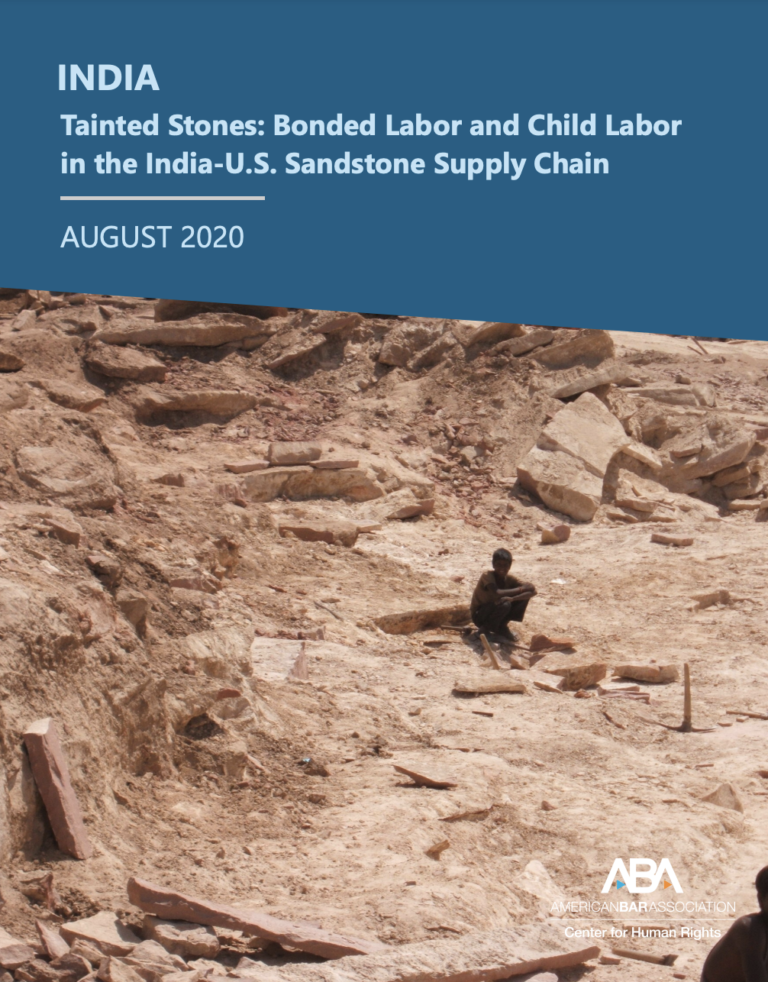Three million workers are employed in India’s sandstone mining industry on a seasonal basis, with nearly 90% of India’s sandstone produced in the state of Rajasthan. Although the Government of Rajasthan has issued thousands of mining licenses and leases, there is a thriving unregulated and unlicensed market. The United States is the fourth largest importer of Indian sandstone, with a total import of 97 million pounds valued at US $16.7 million.
The American Bar Association Center for Human Rights undertook a comprehensive study to examine the Indian sandstone mining industry in the state of Rajasthan. The study examined potential human rights violations in the U.S. supply chain. Through literature review, a survey, and in-person interviews, this report documents serious human rights violations committed in the sandstones supply chain. The Center examined the national legal framework, protection mechanisms, and their compliance with international human rights law and international labor standards. The first part of the report details the multifaceted supply chain of the sandstone mining industry. It then explores whether the issues affecting the industry alleged in other reports also exist in the case of stone imported into the United States.
The study found that stones which the United States imports can likely be traced to a supply chain that is marred by serious human rights violations. In the context of the United States’ importation, the unregistered—and thus legally unprotected—workers are subjected to bonded labor, child bonded labor, child labor, low wages, occupational health and safety hazards.
This report issues recommendations to all stakeholders as well as business enterprises involved in exporting, importing, mining, and processing to ensure the protection of human rights through due diligence and best practices in the sandstone mining industry’s supply chain.

